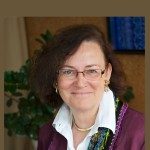Lien vers Pubmed [PMID] – 26029705
Mol Genet Genomic Med 2015 May;3(3):189-96
The genetic heterogeneity of congenital hearing disorders makes molecular diagnosis expensive and time-consuming using conventional techniques such as Sanger sequencing of DNA. In order to design an appropriate strategy of molecular diagnosis in the Algerian population, we explored the diversity of the involved mutations by studying 65 families affected by autosomal recessive forms of nonsyndromic hearing impairment (DFNB forms), which are the most prevalent early onset forms. We first carried out a systematic screening for mutations in GJB2 and the recurrent p.(Arg34*) mutation in TMC1, which were found in 31 (47.7%) families and 1 (1.5%) family, respectively. We then performed whole exome sequencing in nine of the remaining families, and identified the causative mutations in all the patients analyzed, either in the homozygous state (eight families) or in the compound heterozygous state (one family): (c.709C>T: p.(Arg237*)) and (c.2122C>T: p.(Arg708*)) in OTOF, (c.1334T>G: p.(Leu445Trp)) in SLC26A4, (c.764T>A: p.(Met255Lys)) in GIPC3, (c.518T>A: p.(Cys173Ser)) in LHFPL5, (c.5336T>C: p.(Leu1779Pro)) in MYO15A, (c.1807G>T: p.(Val603Phe)) in OTOA, (c.6080dup: p.(Asn2027Lys*9)) in PTPRQ, and (c.6017del: p.(Gly2006Alafs*13); c.7188_7189ins14: p.(Val2397Leufs*2)) in GPR98. Notably, 7 of these 10 mutations affecting 8 different genes had not been reported previously. These results highlight for the first time the genetic heterogeneity of the early onset forms of nonsyndromic deafness in Algerian families.

